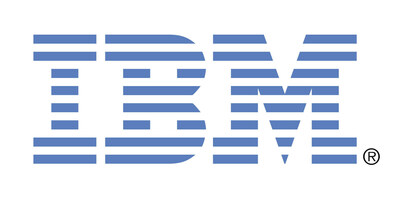IBM Study: CEOs Double Down on AI While Navigating Enterprise Hurdles
Rhea-AI Summary
Positive
- 61% of CEOs are actively adopting AI agents and preparing for scale implementation
- 85% of CEOs expect positive ROI from AI efficiency investments by 2027
- 52% of organizations are realizing value from generative AI beyond cost reduction
- 68% of organizations have clear metrics to measure innovation ROI
Negative
- Only 25% of AI initiatives have delivered expected ROI
- Just 16% of AI initiatives have scaled enterprise-wide
- 50% of organizations face issues with disconnected, piecemeal technology
- 59% struggle to balance funding between operations and innovation
- 31% of workforce will require retraining/reskilling in next three years
Insights
IBM study shows CEOs doubling AI investments despite only 25% of initiatives meeting ROI targets; integration challenges remain the biggest barrier.
IBM's global study of 2,000 CEOs reveals a significant acceleration in AI adoption despite implementation challenges. The finding that AI investment growth is expected to more than double in the next two years, with
What's particularly revealing is the gap between investment and results. Only
The data architecture component is especially critical, with
CEOs are navigating competing pressures, with
By 2027, CEOs expect significantly higher ROI achievement rates -
CEOs recognize AI success depends on leadership, specialized talent, and organizational flexibility more than technology itself.
The organizational and talent dimensions of this study reveal the true complexity of enterprise AI adoption. While technology challenges exist, human factors emerge as equally critical barriers to realizing AI value.
The finding that
The workforce implications are substantial, with CEOs reporting that roughly one-third (
Budget flexibility emerges as a key enabler, with
The barriers to innovation cited - siloed operations, risk aversion, and expertise gaps - represent organizational challenges rather than purely technical ones. The
IBM Vice Chairman Gary Cohn's emphasis on "embracing risk as opportunity" and using AI with enterprise data as competitive leverage during uncertainty points to a fundamental mindset shift - from viewing AI as merely an efficiency tool to seeing it as a strategic differentiator that requires organizational courage to fully implement.
- CEO respondents say they expect the growth rate of AI investments will more than double over the next two years
50% of surveyed CEOs report that rapid investment has resulted in disconnected technology within their organization
The IBM CEO study,* which surveyed 2,000 CEOs globally, revealed that executive respondents expect the growth rate of AI investments to more than double in the next two years, and
According to the findings,
In the foreword of the study, IBM Vice Chairman Gary Cohn writes, "As AI adoption accelerates creating greater efficiency, and productivity gains, the ultimate pay-off will only come to CEOs with the courage to embrace risk as opportunity. Meaning, focusing on what you can control, especially when there is so much you can't. When the business environment is uncertain, using AI and your enterprise data to identify where you have leverage is a competitive advantage. At this point, leaders who aren't leveraging AI and their own data to move forward are making a conscious business decision not to compete."
"CEOs are balancing the pressures of short-term ROI and investing in long-term innovation when it comes to adopting AI," said Mohamad Ali, Senior Vice President and Head of IBM Consulting. "But we know that organizations that keep innovating, especially during periods of uncertainty, will emerge stronger and be better positioned to capitalize on new opportunities."
Other key findings include:
CEOs face competing pressures of short-term ROI and long-term innovation
- Surveyed CEOs report that only
25% of AI initiatives have delivered expected ROI over the last few years, and only16% have scaled enterprise wide. - To accelerate progress, two-thirds (
65% ) of CEO respondents say their organization is leaning into AI use cases based on ROI, with68% reporting that their organization has clear metrics to measure innovation ROI effectively. - Just over half (
52% ) of CEO respondents say their organization is realizing value from generative AI investments beyond cost reduction. 64% of CEOs surveyed acknowledge that the risk of falling behind drives investment in some technologies before they have a clear understanding of the value they bring to the organization, but only37% say it's better to be "fast and wrong" than "right and slow" when it comes to technology adoption.59% of surveyed CEOs admit their organization struggles to balance funding for existing operations and investment in innovation when unexpected change occurs, as67% say more budget flexibility is needed to capitalize on digital opportunities that drive long-term growth and innovation.- By 2027,
85% of surveyed CEOs expect their investments in scaled AI efficiency and cost savings to have returned a positive ROI, while77% expect to see a positive return from their investments in scaled AI growth and expansion.
CEOs see strategic leadership and specialized talent as essential to unlocking AI value, amid expertise and skills gaps
69% of CEO respondents say their organization's success is directly tied to maintaining a broad group of leaders with a deep understanding of strategy and the authority to make critical decisions.67% of CEOs surveyed say that differentiation depends on having the right expertise in the right positions with the right incentives.- CEOs cite lack of collaboration across organizational silos, aversion to risk and disruption, and lack of expertise and knowledge as top barriers to innovation in their organization.
- Surveyed CEOs say roughly one-third (
31% ) of the workforce will require retraining and/or reskilling over the next three years, while65% say their organization will use automation to address skill gaps. 54% of CEO respondents say they are hiring for roles related to AI that did not exist a year ago.
To view the full study, visit: https://www.ibm.com/thought-leadership/institute-business-value/en-us/c-suite-study/ceo
*Study Methodology
The IBM Institute for Business Value, in cooperation with Oxford Economics, surveyed 2,000 CEOs from 33 countries and 24 industries between February and April 2025. Survey questions covered several key areas, including organizational performance, strategic priorities and innovation challenges. The survey also explored how companies manage change, adopt technology like AI, make decisions, leadership approaches, talent strategies, cultural readiness for transformation, collaboration efforts and regulatory concerns.
The IBM Institute for Business Value, IBM's thought leadership think tank, combines global research and performance data with expertise from industry thinkers and leading academics to deliver insights that make business leaders smarter. For more world-class thought leadership, visit: www.ibm.com/ibv. To receive more insights, subscribe to the IdeaWatch newsletter: https://ibm.co/ibv-ideawatch.
About IBM
IBM is a leading provider of global hybrid cloud and AI, and consulting expertise. We help clients in more than 175 countries capitalize on insights from their data, streamline business processes, reduce costs and gain the competitive edge in their industries. Thousands of governments and corporate entities in critical infrastructure areas such as financial services, telecommunications and healthcare rely on IBM's hybrid cloud platform and Red Hat OpenShift to affect their digital transformations quickly, efficiently and securely. IBM's breakthrough innovations in AI, quantum computing, industry-specific cloud solutions and consulting deliver open and flexible options to our clients. All of this is backed by IBM's long-standing commitment to trust, transparency, responsibility, inclusivity and service. Visit www.ibm.com for more information.
Media Contact
Marisa Conway
IBM Communications
conwaym@us.ibm.com
![]() View original content to download multimedia:https://www.prnewswire.com/news-releases/ibm-study-ceos-double-down-on-ai-while-navigating-enterprise-hurdles-302446435.html
View original content to download multimedia:https://www.prnewswire.com/news-releases/ibm-study-ceos-double-down-on-ai-while-navigating-enterprise-hurdles-302446435.html
SOURCE IBM










